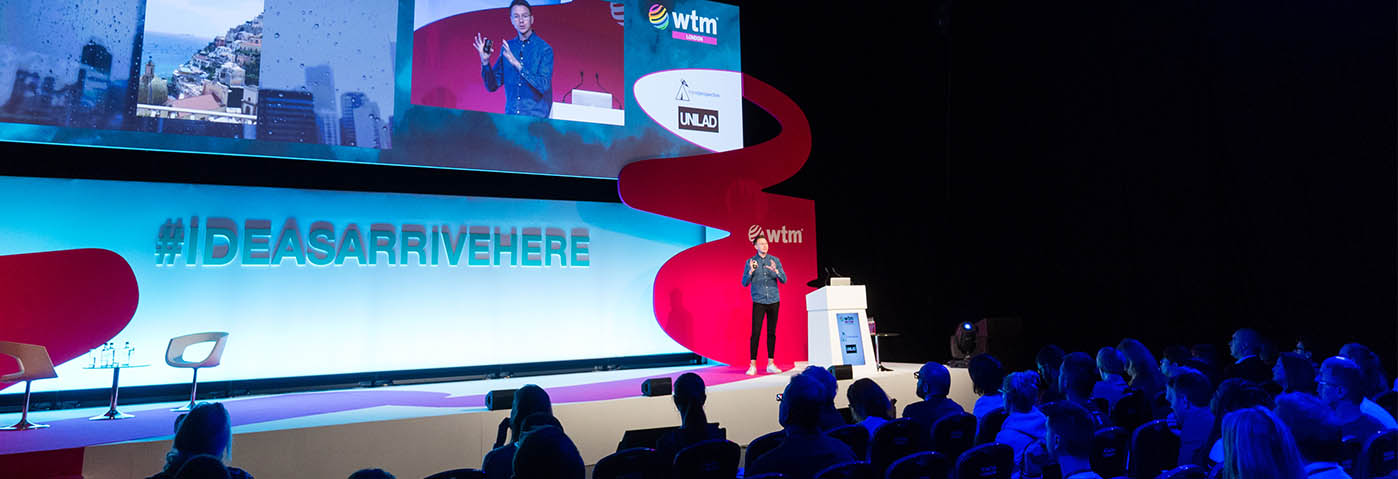The increasing importance of social media – particularly Instagram, the challenge of managing tourism in popular cities and social enterprise all formed topics on the Global Stage on Day One of WTM London, the global event where ideas arrive.
Travel lovers are one of the most active groups on Instagram and are twice as likely to watch video content on the social site compared to other users, according to Neasa Bannon, EMEA Travel Lead at Instagram and Facebook.
She told WTM London’s Global Stage keynote speech on Instagram and Travel that Instagram has over one billion active users, with 500 million using the site every day.
While many follow people they know, 50% follow non-reciprocal posts, making Instagram an important marketing medium for travel companies. Many users seek out hidden gems and there have been 290,000 uses of the hashtag #hiddengems, she said.
Successful marketing on social media means campaigns must be correctly tailored to audiences, according to Adam Middleton, Head of Strategy at social media publisher UNILAD, which is making great strides in the travel arena.
He said: “I’m seeing super-high-quality TV ads replicated on Facebook. Think about the style of content. It’s not always about the high quality content. As a user if I’m seeing content like this I not only want to know where it is but I’m going to be tagging my friends.”
His point was echoed in a later session, Nation Branding in a Digital Economy, by speaker Jeremy Jauncey, founder and CEO of Beautiful Destinations.
He said: “Content can be put out almost instantaneously and it can be measured. You can do it at a very affordable cost on a massive scale.
“The majority of content on mobile is on the go. It’s an enormous opportunity that sits in front of us.”
During the session, Leah Chandler, Chief Marketing Officer at Discover Puerto Rico, described how the tourist board used social media to reach out to press, mainly from the US, after the island was hit by Hurricane Maria in September 2017.
“We put the elephant in the room and we challenged the news media to come to Puerto Rico to see what was happening,” she explained. “We have had millions and millions of impressions and opportunities for Puerto Ricans who can tell the story of the island and write the narrative.”
Tourism representatives from Barcelona, Amsterdam, London and New York City discussed how to deal with the growing influx of visitors in a thought-provoking session on the Global Stage entitled Coping with Success in Major Cities.
Frans van der Avert, CEO of Amsterdam Marketing, said the city, with a population of 800,000, faces a challenge from its annual 18 million visitors, a figure that is set to rise to 25 million in the next few years. “We decided in 2014/15 not to spend any euros on marketing, but to guide visitors on where to go. I don’t call it city marketing, I call it city management,” he said.
New York’s ‘Five Borough strategy’ and its initiative to encourage seasonal travel has helped spread visitor flow throughout New York, meaning there is ‘plenty of room at the inn’, according to NYC & Company Senior Vice President Global Communications Chris Heywood.
The city attracts 13.5 international visitors and 65 million visitors worldwide in total.
“We’re packaging our incentives more smartly. We are trying to put all of our energy into highlighting the first quarter of the year,” he added.
Laura Citron, Chief Executive of London & Partners told delegates: “We are very conscious that we can only grow tourism if it’s sustainable. Our aim is to grow tourism in the ways that are attractive to Londoners.”
Social enterprise is the key to making travel work for the people who live in the destinations that tourists visit, Bruce Poon-Tip, founder of G Adventures, told the audience.
In his session, entitled: How to Discover More Passion, Purpose and Happiness in Travel, Poon-Tip said that, for every $100 US spend abroad, only $5 US stays in the local economy.
“We can transform lives as an industry. Imagine if you got to a place where going on holiday was a way of giving back. Travel could be the greatest form of wealth distribution the wold has ever seen,” he said. “Business models have to change.”
G Adventures is expanding its Women on Wheels concept, which supports single mums in India by teaching them to drive then setting them up in jobs transporting G Adventure clients visiting the country. The scheme, one of many worldwide the company runs to support local people, will be extended in Nairobi and South Africa.


